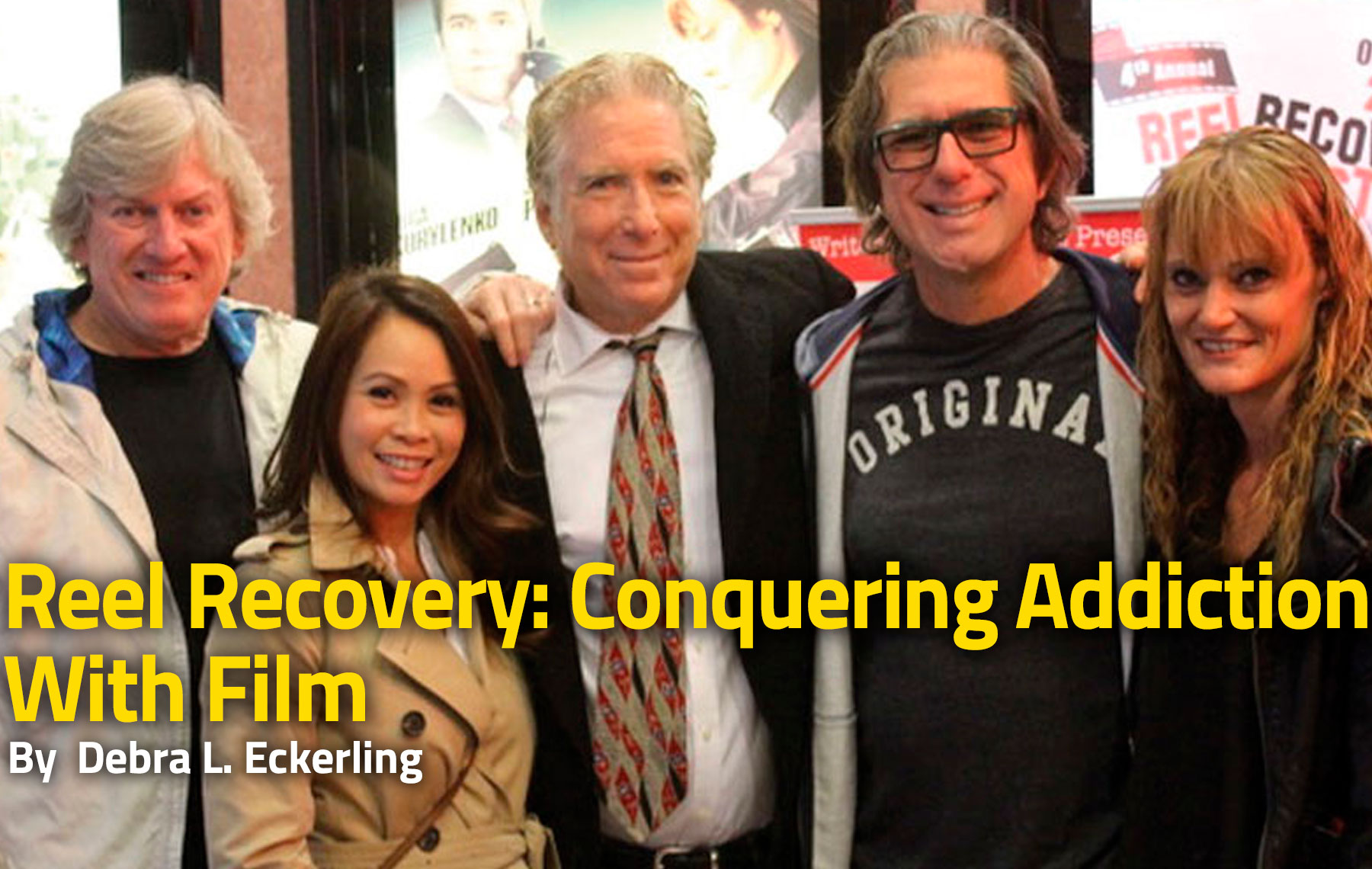

Photo by Karl Abrams
The 10th annual Reel Recovery Film Festival & Symposium (RRFF), which runs through Oct. 30 in Los Angeles, describes itself as a “multi-day event celebration of film, the arts, writing and creativity [that] showcase filmmakers who make honest films about addiction, alcoholism and behavioral disorders.”
To date, the festival has screened more than 300 films in 12 cities (including Vancouver, Houston, Denver and London), and featured original movies from Iran, Ireland, the Netherlands, the United Kingdom, New Zealand, Canada and the United States.
However, ask Leonard Lee Buschel, executive director and co-founder of RRFF, to describe the event, and he uses one word: “bashert” (meant to be).
“If you’re a step ahead of a person and they trip, there’s something special about helping them to get up,” Buschel told the Journal via phone. “Part of the whole recovery world is being of service to others, and, if not showing them the way, at least showing them the way that you’ve been going.”
An addiction specialist and counselor who has been sober for 24 years, Buschel — who co-founded the festival with his longtime friend Robert Downey Sr. — also co-founded Writers In Treatment, which offers free referrals for individuals suffering from alcoholism or addiction, and which also presents the festival. He is also the editor and publisher of the weekly Addiction Recovery eBulletin and produces the annual Experience, Strength and Hope Awards in Los Angeles, honoring public figures in recovery who have written books about their careers and their former addiction.
“Somehow, I feel like I was born to do this work, after years of being into drugs and being into film at the same time,” Buschel said. “It merges all the things that I love, because film includes music, costuming, design — all the arts.”
In creating the festival, Buschel said, “There’s been a lot of great alcohol and drug movies that are no longer shown in the theaters and deserve to be. Why not watch something as grand as “Leaving Las Vegas” in the theater rather than on a television?”
He added that screening such films are great communal events for people in both the recovery world, including their families and friends, and for cinephiles who like to see great films.
“There is something [Jews] find very elevating and humbling at the same time, whether it’s a beautifully made tallis, or a perfectly poured glass of wine. Those are gorgeous little things, and art can be that way too.” — Leonard Lee Buschel
In its first year the festival only showed classics on 35mm film every Tuesday night over eight weeks. Among the movies screened that first year were, “The Lost Weekend,” “Days of Wine and Roses,” “Barfly” and “Less Than Zero.” Then and now, after every screening, there’s either a discussion, panel or conversation with the filmmakers or a clinician.
The response was so great that first year that Buschel and Downey Sr. decided to continue the festival and symposium. Once they put the word out, original film submissions started coming in from around the world.
“As long as you had a camera, a good idea, some friends, some ambition, you could make a film that we could project on a big screen,” Buschel said.
Ten years later, the festival now showcases around 60 classic and contemporary national and international films (shorts, documentaries and features), depicting addiction, alcoholism, mental health issues, treatment and recovery.
Buschel estimates that 20 to 25 percent of the films shown are by first-time filmmakers, adding that up to “40 percent of the filmmakers are clean and sober.”
In the festival’s first two years, the featured films focused on alcohol and addiction. “Mental illness, mental disorders sometimes overlap, so [now] we have a lot of great films with mental disorders,” Buschel added. RRFF now shows films about eating disorders, self-harm and process addictions — including sex, gambling and shopping addictions — as well as dual diagnoses: addictive behavior with mental illness.
Buschel said he wished every teacher, doctor and therapist would watch RRFF movies. “We don’t show films that preach, we show films that teach, but don’t minimize or exaggerate,” he said.
RRFF’s main criteria when it comes to choosing films is that “first and foremost they’re honest depictions of the ailments,” Buschel said. “They’re honest and entertaining and sometimes educational. In many cases it’s people overcoming serious addictions, so it has an inspirational aspect, as well.”
Buschel attributes his success as the festival’s curator to being Jewish.
“There is something [Jews] find very elevating and humbling at the same time,” he said, “whether it’s a beautifully made tallis, a perfectly poured glass of wine, a beautiful little square of fabric that you cover the matzo with at Passover. Those are gorgeous little things, and art can be that way, too.”
Buschel said he’s seen people begin a path to recovery after seeing some of the festival’s films. “I have seen the light bulb go off over people’s heads who have maybe been sober for a couple weeks and weren’t quite committed. They see some of our films, and I see them start to lean toward recovery.”
Indeed, he’s the first to admit that it’s film that helped him toward his own recovery 2 1/2 decades ago.
“Right now I call [film] my drug of choice,” he said. “I literally have to go see a film once a week or every other week, otherwise I start to get shpilkes. Twenty-four years ago, if I got shpilkes, I would smoke a joint and they’d go away. Now I have to go to a film just to get out of my own head.”
The Reel Recovery Film Festival & Symposium runs through Oct. 30 at Laemmle Royal Theatre, 11523 Santa Monica Blvd., Los Angeles. Visit reelrecoveryfilmfestival.org for the schedule.























 More news and opinions than at a Shabbat dinner, right in your inbox.
More news and opinions than at a Shabbat dinner, right in your inbox.